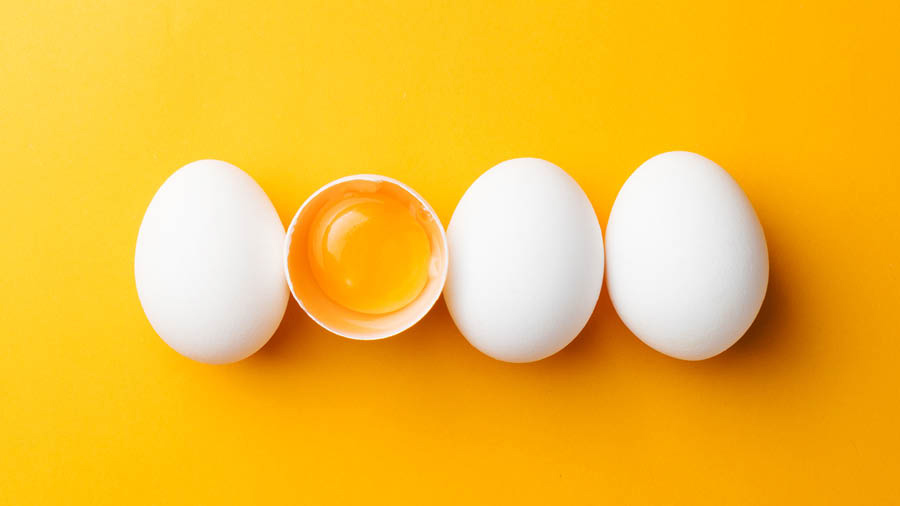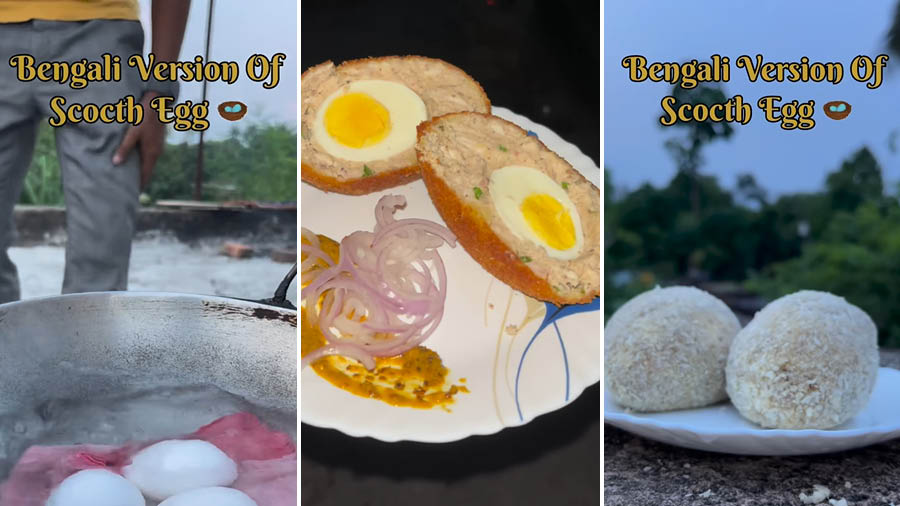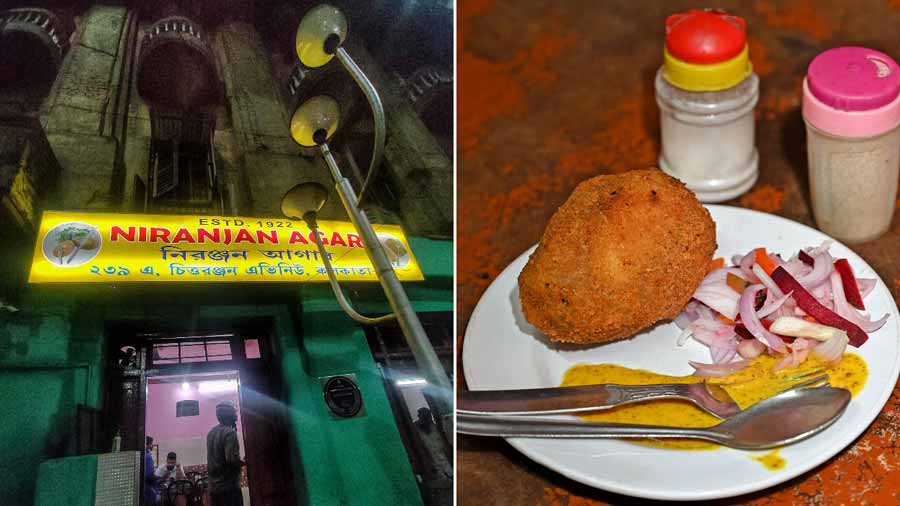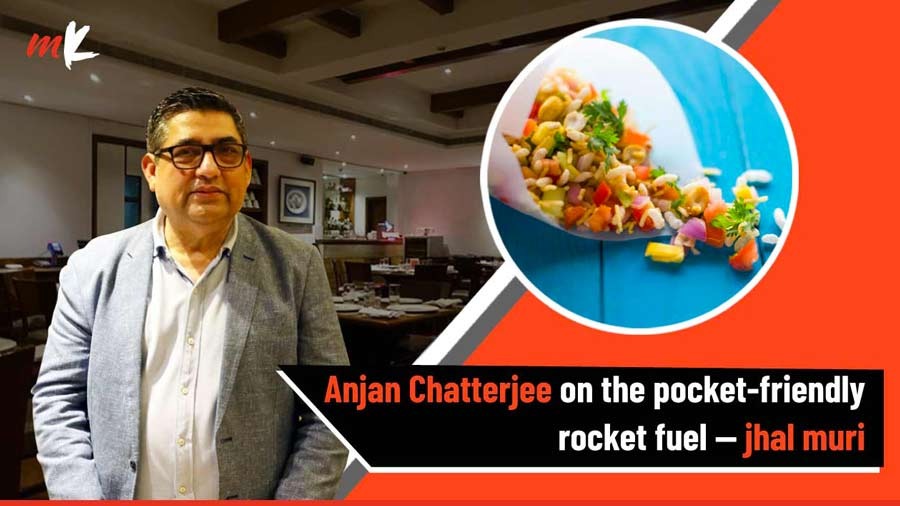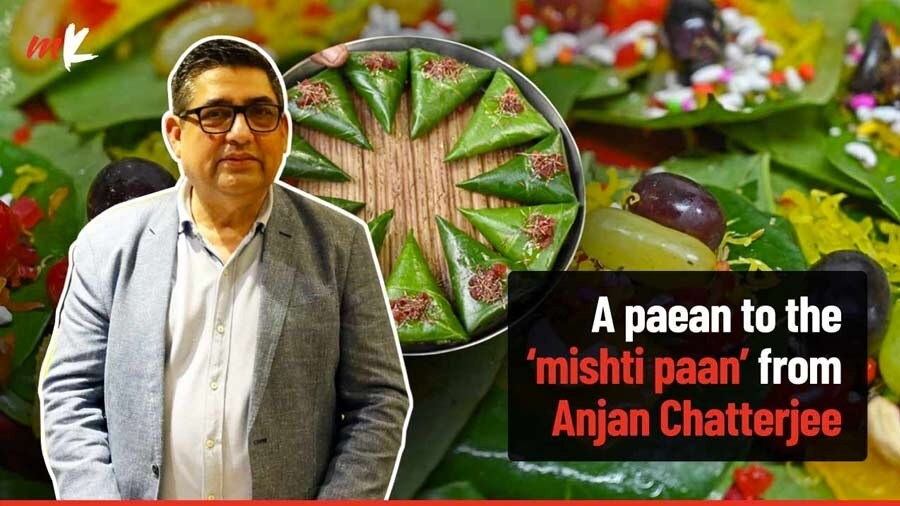Imagine the day when the humble egg does not exist in the culinary landscape of a Bengali household kitchen! Well, it is daunting to even envision such a scenario, as all hell may break loose! For a non-vegetarian, having an egg is ‘deemed’ ecstasy. I cannot recall a single day when I have not had an egg in some form or another. The day could start with a simple omelette for breakfast or Dim’er Dalna or Kosha (egg curry variations) for lunch or dinner, be it at home or at a restaurant. But I cannot dream of an ‘eggless’ day. It’s preposterous to even assume such a scenario and it’s an outright sacrilege, as eggs are not only soul-satisfying but loaded with benefits that doctors also cannot refute. In fact, even the government of West Bengal has taken initiatives to become self-sufficient in egg production by the end of this year. So, with all due respect to the vegetarians and vegans of the modern world, why not an egg a day?
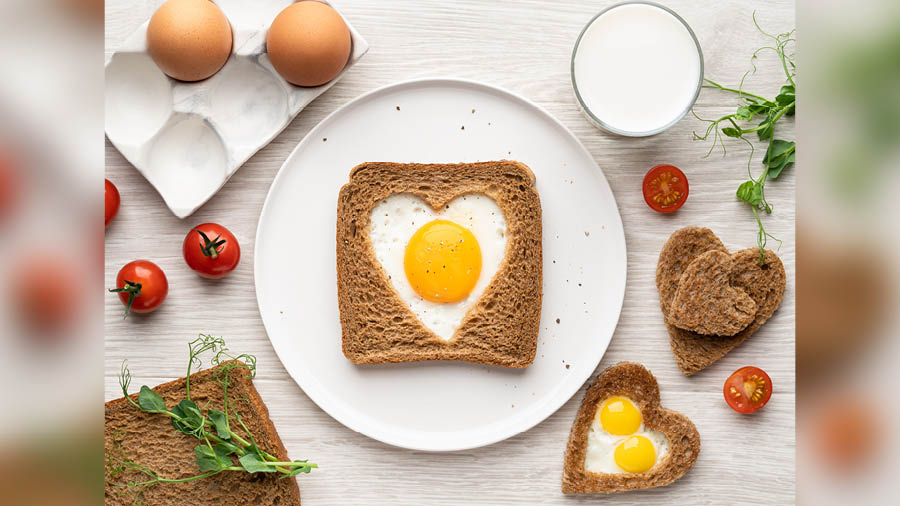
Eggs are not only soul-satisfying, but loaded with benefits that doctors also cannot refute Shutterstock
The Bengali’s relationship with eggs have long been an integral part of its cuisine and culture. From Chicken Egg rolls to Dim’er Devil (a local variation of Devilled Eggs) and from Chicken Cutlet to biryanis, Calcutta has an eternal love affair with eggs – leaving an indelible mark on Bengali cuisine. Though Bengalis are known to have their sweet indulgences, ranging from their beloved Rosogolla to the mouth-watering Sondesh, and boasts of a unique repertoire of vegetarian and vegan options – each one of them being given due respect and a position of preference, but none of them can substitute the egg in the cuisine.
It’s no surprise that in today’s world, there are vegetarians by birth who have fallen in love with eggs and are proud enough to declare that they are not strictly vegetarians, but ‘Eggetarians’ and are slowly gaining acceptance even in some orthodox families. And when they have eggs, which has to be had discreetly outside their homes, they tend to throw caution to the winds and simply gorge on eggs as if there is no tomorrow. I had such a friend (from a strictly vegetarian family) and whenever he came over for a meal at our house, the menu used to be nothing else but several dishes consisting only of eggs in all forms possible, ending with a boiled egg instead of a sweet for dessert.
There is a lot of importance of eggs in a Bengali household. For some, it is considered to be akin to ‘Mangshor Jhol’ (mutton curry) in terms of its position. When you can’t afford to have mangsho daily, then Dim’er Dalna (egg curry) is the only and perfect substitute to satiate the craving of a non-veg flavour, termed aansh in Bengali. While Luchi with Aloo Phoolkopi’r Tarkari (Aloo Gobi sabzi) for Sunday breakfast could be a ritual in most Bengali household in any strata of the society, but for the rest of the six days of the week, an egg is a must.
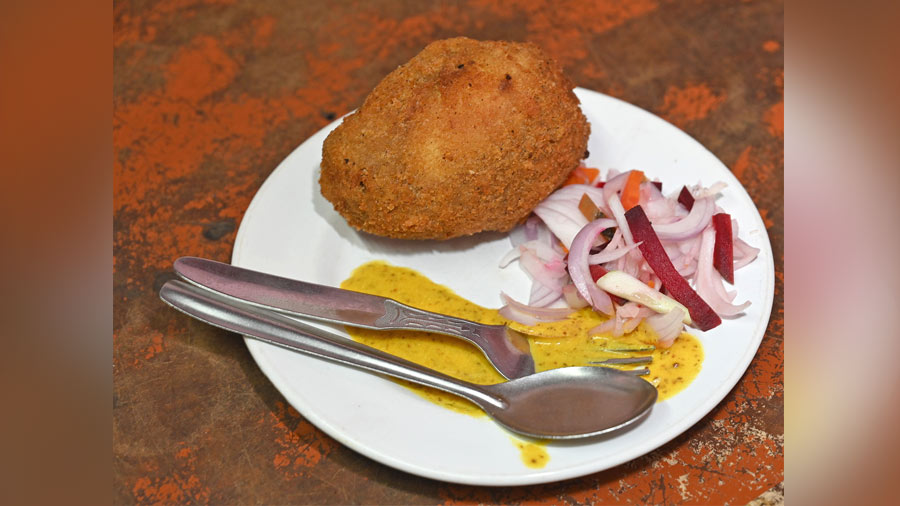
The ‘Dimer Devil’ at Niranjan Agar TT archives
However, this routine doesn’t necessarily mean it is boring – Bengalis have adapted and devised ways of having eggs for breakfast creatively with several variations. It could be Deem sheddho (boiled egg) on a Monday, a plain omelette on Tuesday, Dim’er Bhurji (scrambled eggs) on Wednesday, French Toast on Thursday, a half-boiled egg on Friday and for me the ‘Dimer Poach’ (not a traditional ‘poached egg’ steamed in water, but actually a fried egg sunny-side up) used to be the ultimate on Saturday. And there is a reason for it, because we love to have an egg in its entirety and artistically. For example, there is a way of devouring a poach – starting by having the egg white from all sides, bit-by-bit like an eclipse, gradually moving towards the ‘golden sun’, or the egg yolk, at the centre and then softly pricking it with a fork and slowly savouring every drop of the heart-melting liquid gold that oozes out.
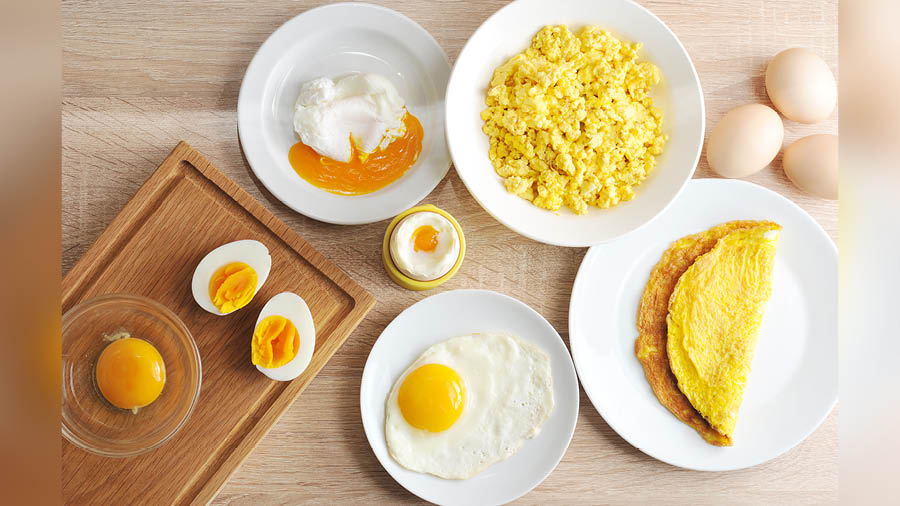
Bengalis (and the world) have adapted and devised ways of having eggs for breakfast creatively with several variations Shutterstock
These days, the younger generation are much evolved and health conscious, preferring to have only the protein or the egg white. But to me, it just doesn’t make sense. Because without the yolk, where’s the taste? It’s an insult to the egg. It is like having an ‘eggless egg’. There’s a friend of mine and I have not come across a bigger egg fanatic than him. Since his school days, he used to have a routine of just ‘Phyana Bhat (boiled rice preferably Gobindobhog) with a dollop of butter and a ‘dim-er poach’ on top for breakfast and continued the same routine throughout his life, even today at the age of 65 and proudly declares that he will continue it till his dying day. Can there be a bigger egg lover than him in this world? I am also crazy about eggs, though not to such an extent, but you would always find my fridge filled with a dozen eggs at any given point in time.
While a life without eggs may be filled with breakfast blues and baking blunders for the ‘deem’-loving Bengalis, the essence of eggs lies in their versatility and taste. It is God’s gift, if not to the world, then at least to Bengalis and reminds me of a line from a popular Hinglish jingle... ‘Sunday ho ya Monday, roz khao andey’ and can add: ‘everyday will become funday.’
Anjan Chatterjee is the chief of Speciality Restaurants, which owns Mainland China, Oh! Calcutta, Cafe Mezzuna, Sigree Global Grill, Hoppipola, Asia Kitchen and more. And yes, he is a foodie! He can be reached at acgenx@gmail.com.
